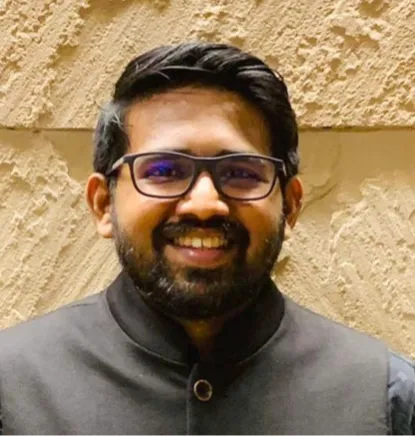Bangladesh and Pakistan head to elections on January 7 and February 8, respectively. In the last five years, both countries have been subject to severe economic and political challenges, largely due to the Covid-19 pandemic and the Russia-Ukraine war. Given the situation, it is likely that the status quo will prevail in Bangladesh; in Pakistan, regardless of who is in office, the military will exercise the ultimate authority.
Both Bangladesh and Pakistan have seen adverse impacts of fuel inflation, resulting in power blackouts and a decrease in production and exports in the past five years. Combined with food inflation, protests, and unrest have roiled both countries on multiple occasions. Supply chain disruptions, heavy fuel imports, limited export diversification, and extensive borrowing, along with other institutional and structural weaknesses have resulted in a steep fall in foreign reserves. Both countries had approached the International Monetary Fund for assistance in 2022.
Supply chain disruptions, heavy fuel imports, limited export diversification, and extensive borrowing, along with other institutional and structural weaknesses have resulted in a steep fall in foreign reserves.
In Bangladesh, the main opposition Bangladesh Nationalist Party (BNP) was quick to use the economic situation to challenge Sheikh Hasina and her Awami League’s (AL) legitimacy. After having called on Sheikh Hasina to resign, the BNP has now decided to boycott the elections. With other contestants having little to no capacity and political space to challenge the AL, Sheikh Hasina will likely win her fourth consecutive term. But with allegations of electoral rigging and domestic crackdown looming, the opposition is likely to continue with more protests against the government even after the results are declared.
This will complicate India’s position in Bangladesh. Bangladesh under Sheikh Hasina has championed the art of balancing with its “friendship to all, malice to none” policy. This has given Dhaka enough leverage to attract investments from China, better connect with India, and improve economic and defence relations with Japan and the West. But Hasina’s track record on democracy and human rights has invited criticism from the United States (US) and the West on multiple occasions. The US has even threatened to impose sanctions on individuals disrupting “free, fair, and peaceful” elections. Both China and India, on the other hand, have preferred working with Sheikh Hasina – underscoring the inevitable competition to influence that country.
However, targeted coercion or restrictions on trade and defence partnerships by the West are likely to put enormous pressure on Bangladesh’s foreign policy and may compel it to move closer to China. Delhi has thus even urged the West to not push Bangladesh to an extent that would be advantageous to Beijing. Hasina’s victory will likely put Delhi’s relations with Dhaka under more scrutiny — with the West expecting India to be vocal about the state of democracy in Bangladesh, and the latter hoping India could fend off pressure from the West. In this regard, India will have to walk a tightrope to maintain its leverage, fend off external pressure, accommodate the West’s concerns, and limit China’s inroads.
Hasina’s victory will likely put Delhi’s relations with Dhaka under more scrutiny — with the West expecting India to be vocal about the state of democracy in Bangladesh, and the latter hoping India could fend off pressure from the West.
In Pakistan, the military has begun to consolidate more power and influence, following its fallout with Imran Khan and his Pakistan Tehreek-e-Insaf (PTI). Following this, the succeeding coalition government and the caretaker government have conferred more political and legal power on the institution. This has helped the military crackdown on PTI and maintain its supremacy in the country’s civil-military balance. By involving themselves in the economic recovery process, especially with the creation of the Special Investment Facilitation Council (SIFC), the military has further made inroads into the domain of policymaking. The military will thus influence the incoming government’s policies, especially if their favoured candidate, former prime minister Nawaz Sharif, fails to secure a majority.
However, the dominance of the military in civic affairs will hardly impact bilateral relations with India. Economic challenges, tensions with the Taliban, and a rise in terror attacks within the country have pushed Pakistan to maintain some calm on its eastern borders, especially after the relationship reached an all-time low with the Pulwama terror attack and India’s abrogation of Article 370. This passive peace has also allowed India to focus on a more significant threat — China. Despite some India favourable noises coming from Islamabad these days, it remains unclear what leverage any new government will have on making a decisive break from the past on Kashmir. New Delhi may have moved on but Rawalpindi's ability to create trouble still remains.
China offered financial assistance of more than $7 billion to Pakistan. Such leverage will make that country vulnerable to greater debt entanglement.
India will also continue to watch Pakistan’s balancing with China and the US. Strategically speaking, China will continue to use Pakistan to access the Indian Ocean and limit India’s growing power ambitions, through defence cooperation and economic leverage. In 2023 alone, China offered financial assistance of more than $7 billion to Pakistan. Such leverage will make that country vulnerable to greater debt entanglement. That said, the military leadership has also shown keen interest in bridging the relationship with the US, laying the ground for the civilian government to further promote defence and economic cooperation. For the US, good relations with Pakistan will also help it push back against China to some extent.
This cooperation will, however, trigger some discomfort in India, increasing complexities in its critical partnership with the US.
This commentary originally appeared in Hindustan Times.
The views expressed above belong to the author(s). ORF research and analyses now available on Telegram! Click here to access our curated content — blogs, longforms and interviews.




 PREV
PREV



